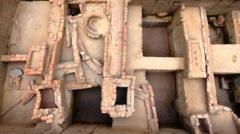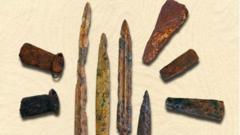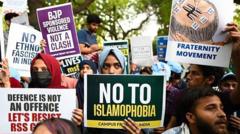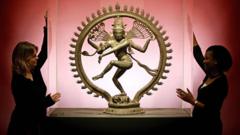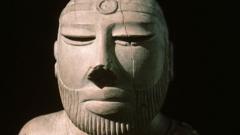The ancient script of the Indus Valley civilization, which remains undeciphered, now has a $1 million prize attached to it, sparking historical inquiry and cultural clashes in India regarding the civilization's origins.
$1 Million Challenge to Decode Indus Valley Script Ignites Cultural Debate

$1 Million Challenge to Decode Indus Valley Script Ignites Cultural Debate
An Indian leader's offer for a prize highlights the complex history and cultural narrative surrounding a long-lost civilization.
In an intriguing challenge bridging history and culture, the chief minister of Tamil Nadu, M.K. Stalin, has announced a landmark $1 million prize for anyone capable of deciphering the ancient script of the Indus Valley civilization. This civilization, having flourished approximately 5,000 years ago across parts of modern-day India, Pakistan, and Afghanistan, is enveloped in mystery, primarily due to the undeciphered nature of its writing system.
Scholars have long grappled with the script, and despite extensive excavations at over 2,000 archaeological sites revealing a wealth of artifacts, little is understood about the people who created it. The resolution of this linguistic enigma is viewed as crucial not just for academic pursuit but also for unraveling broader aspects of the civilization's culture, language, and religious beliefs, alongside insights into its eventual decline.
However, this prize has also plunged into a contentious cultural debate in India. The current political climate sees a rise in Hindu nationalism, with proponents asserting that the Aryan race represents the true lineage of the Indian populace and foundational to Hinduism. Conversely, Stalin's political faction along with several others argue that the original inhabitants were the Dravidians of the south, with the Aryans being later intruders from the north. This historical discourse complicates the deciphering endeavor, as different groups lay claim to the narrative of India's ancient past.
With a $1 million incentive at stake, the hope is that the historic challenge will attract linguists, historians, and cryptographers to collaborate and contribute to untangling the past of one of the world's earliest urban cultures. The outcome may not only shed light on an ancient civilization but could also influence the current sociopolitical landscape in India, igniting discussions on heritage and identity.

